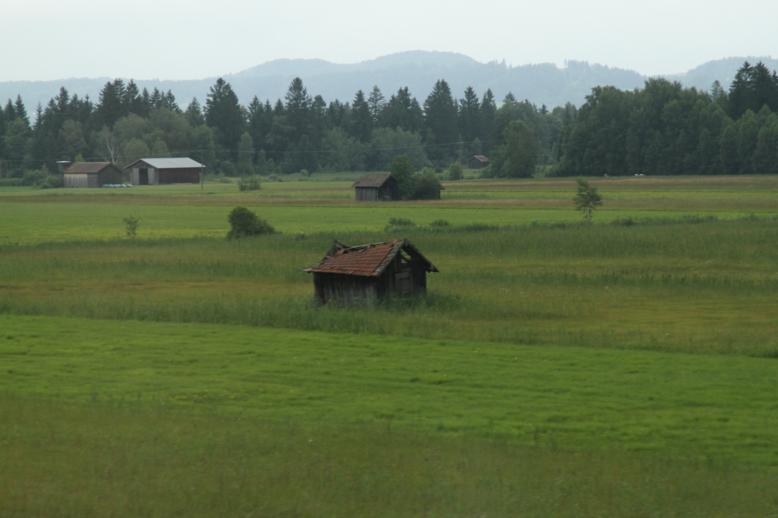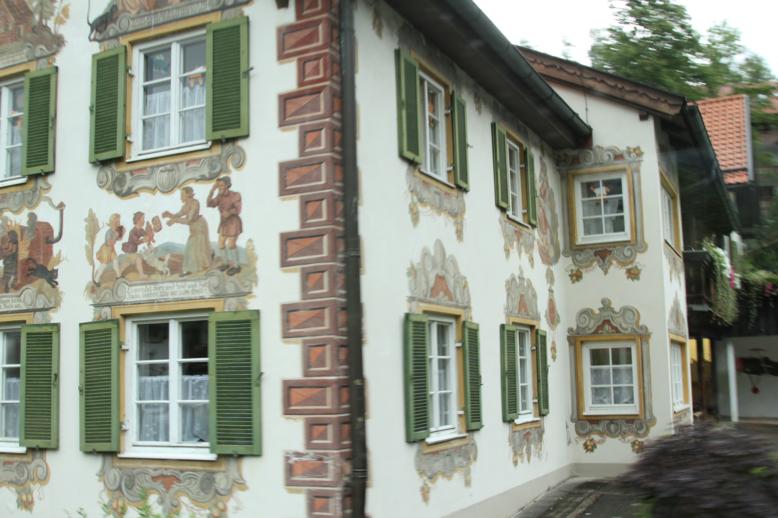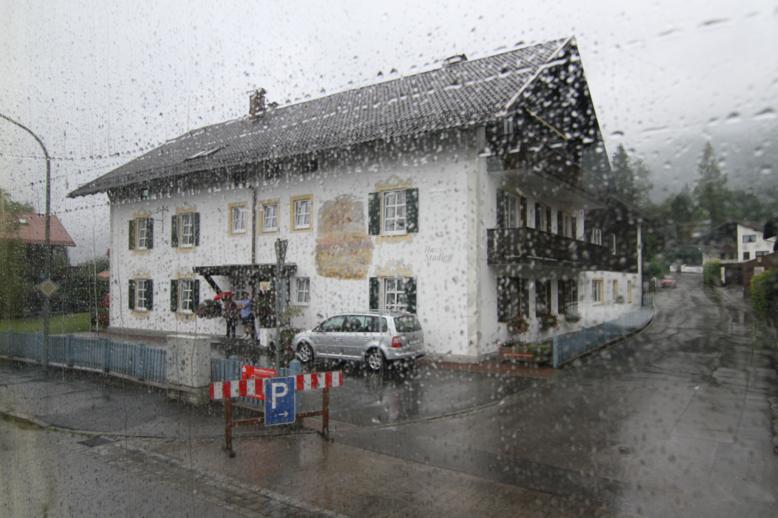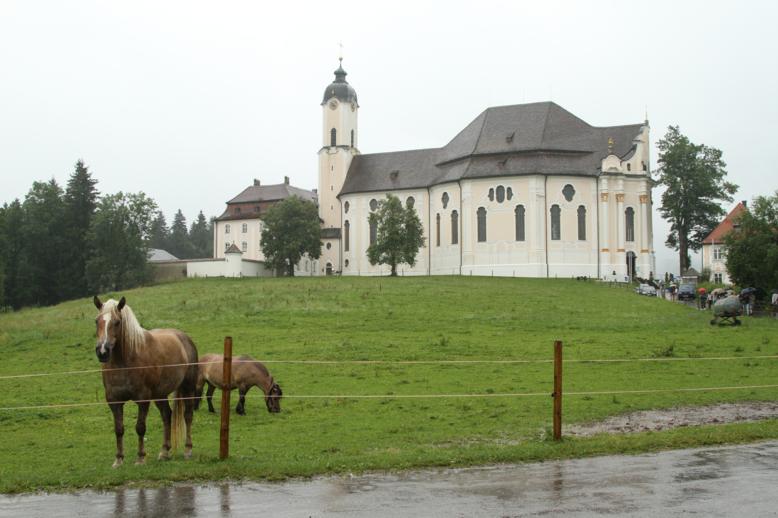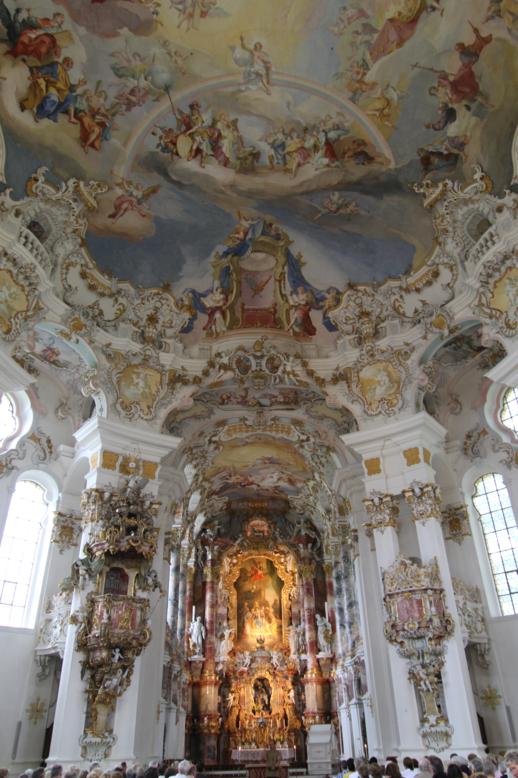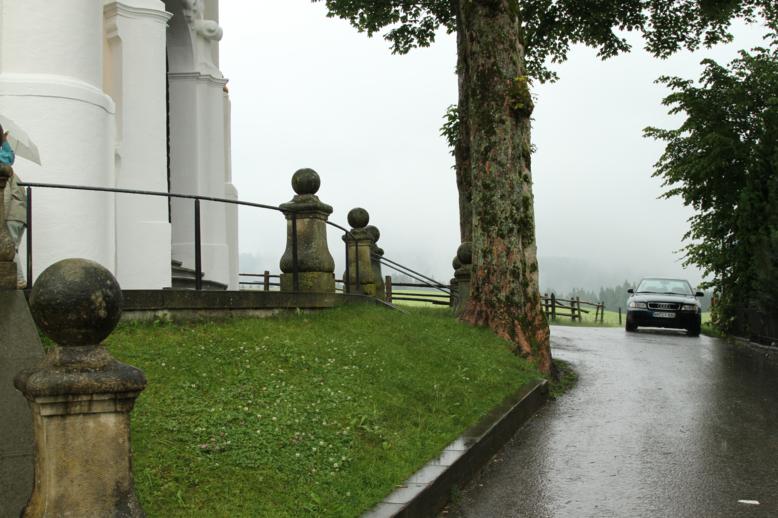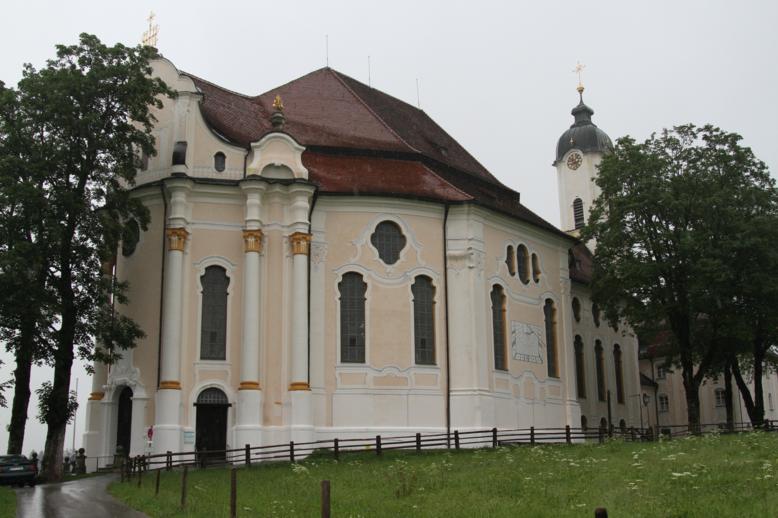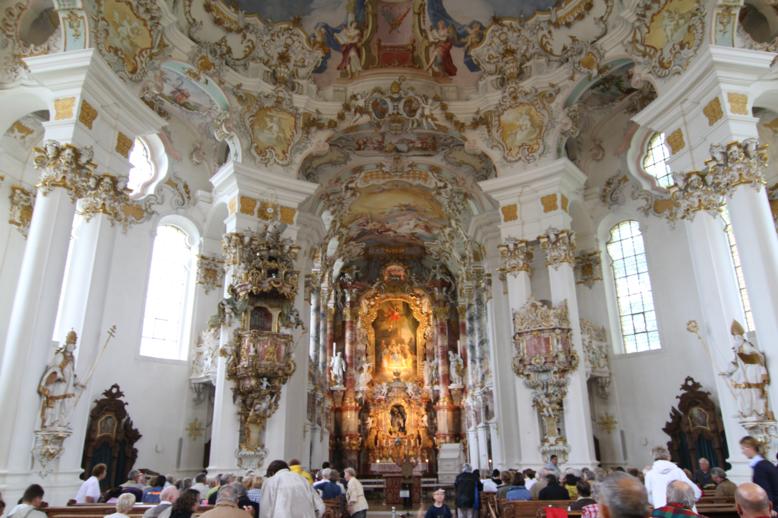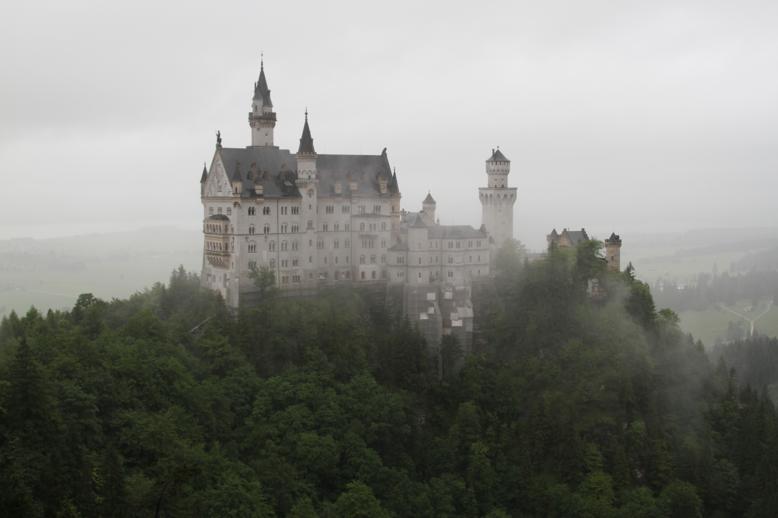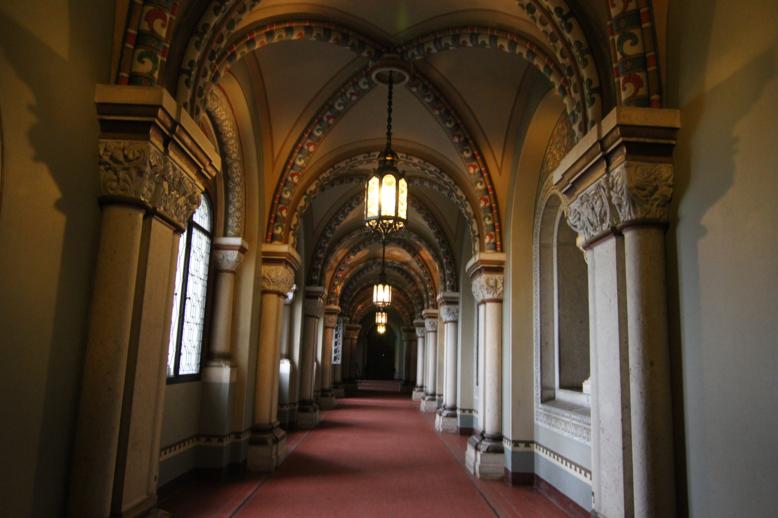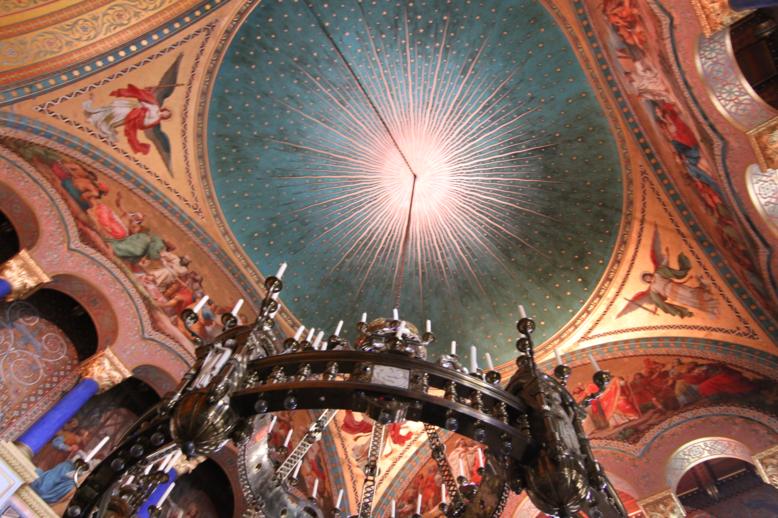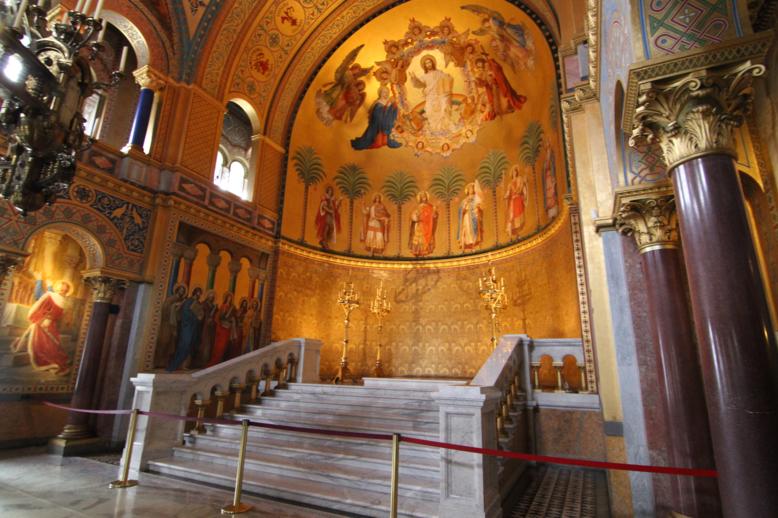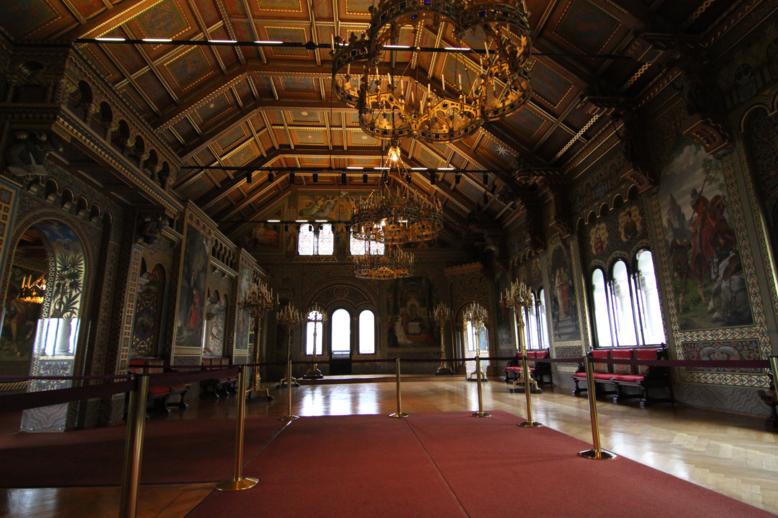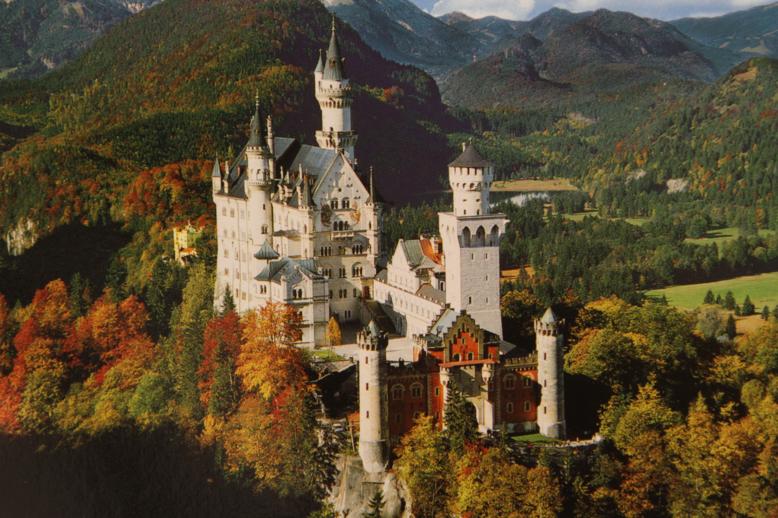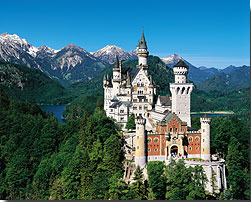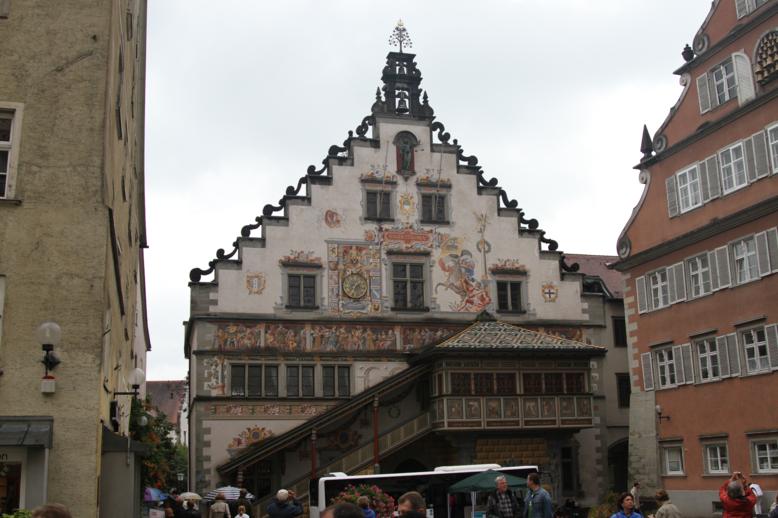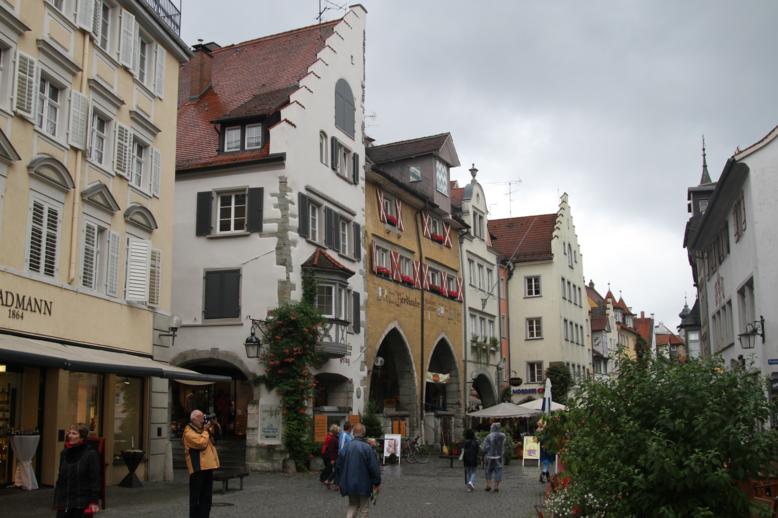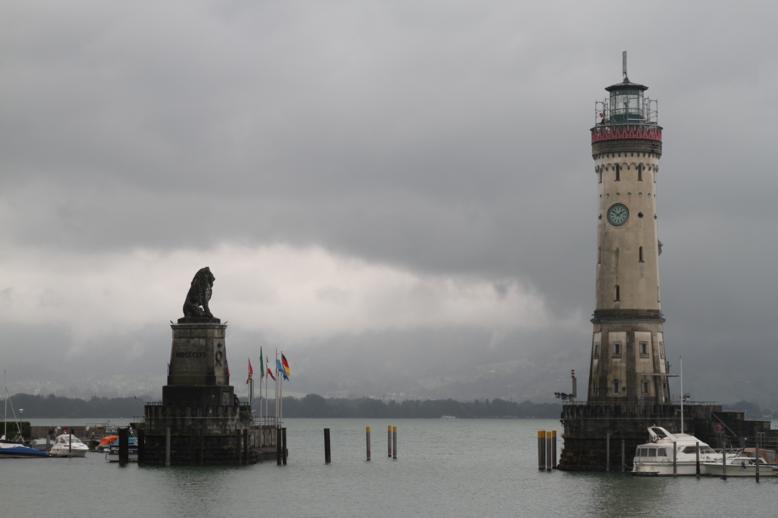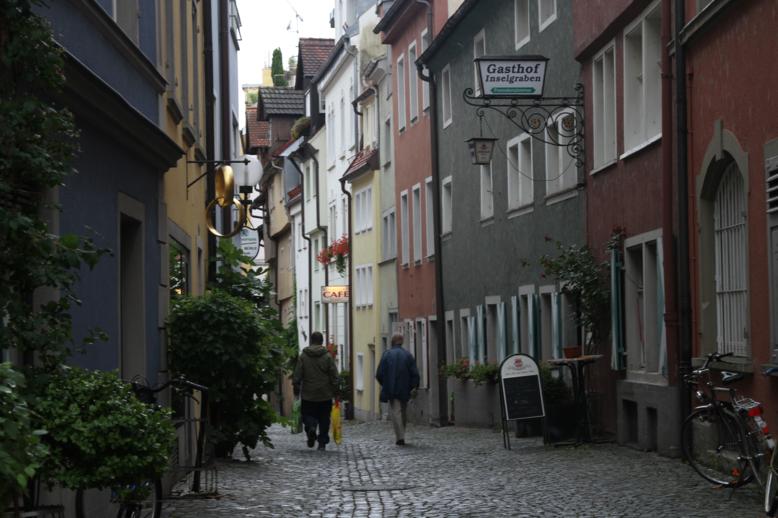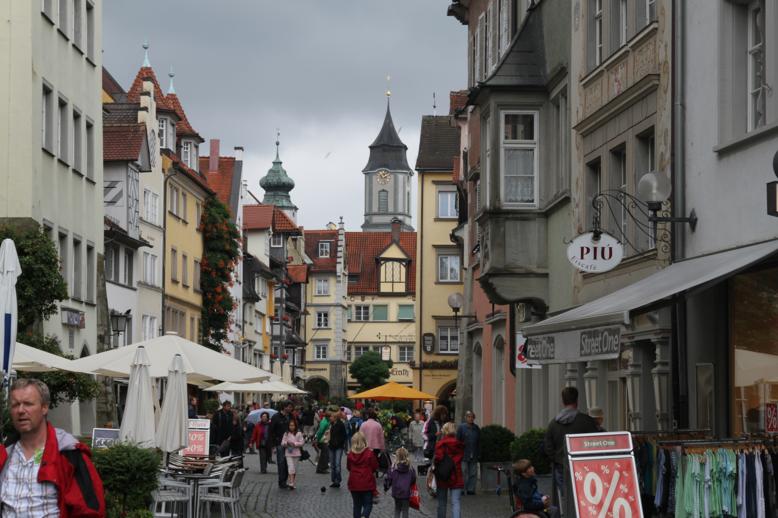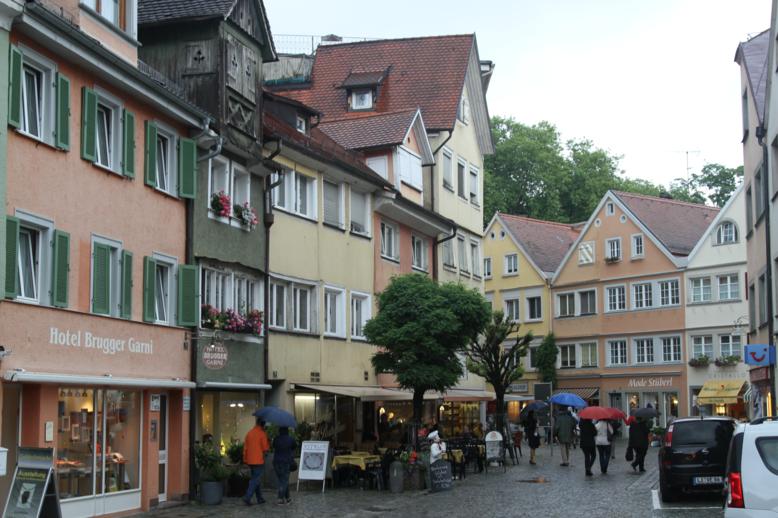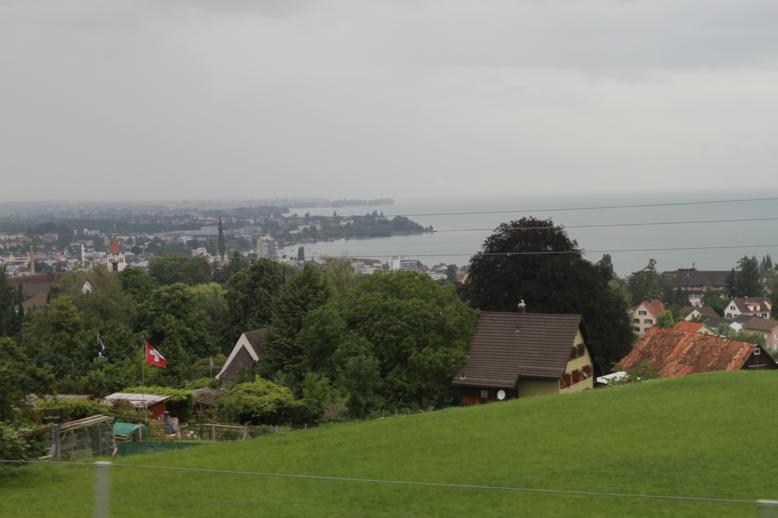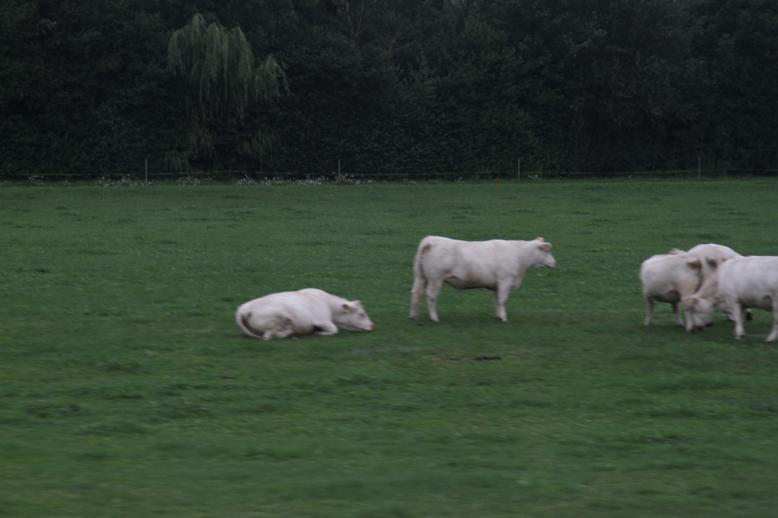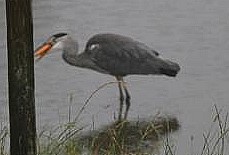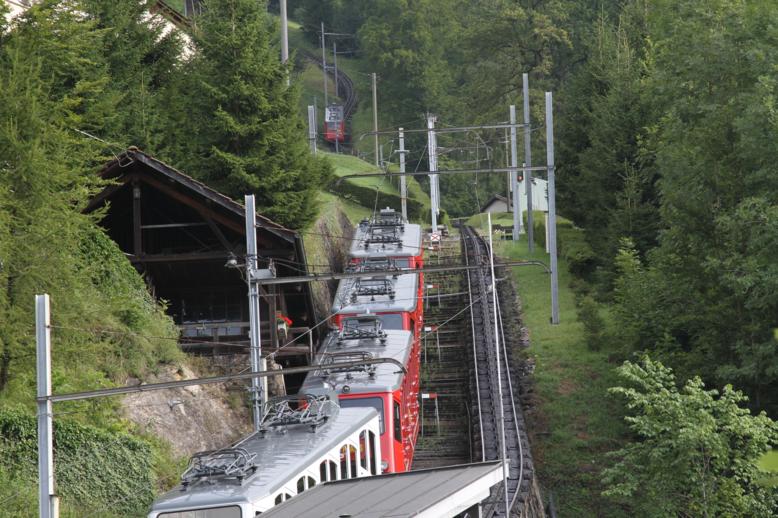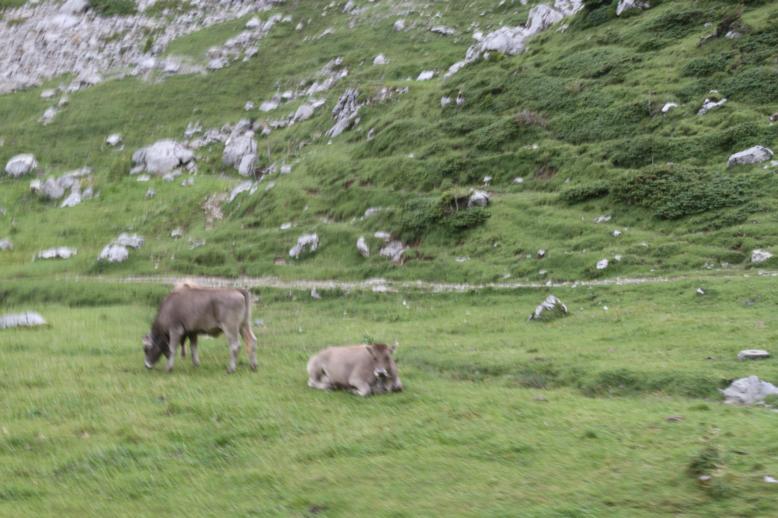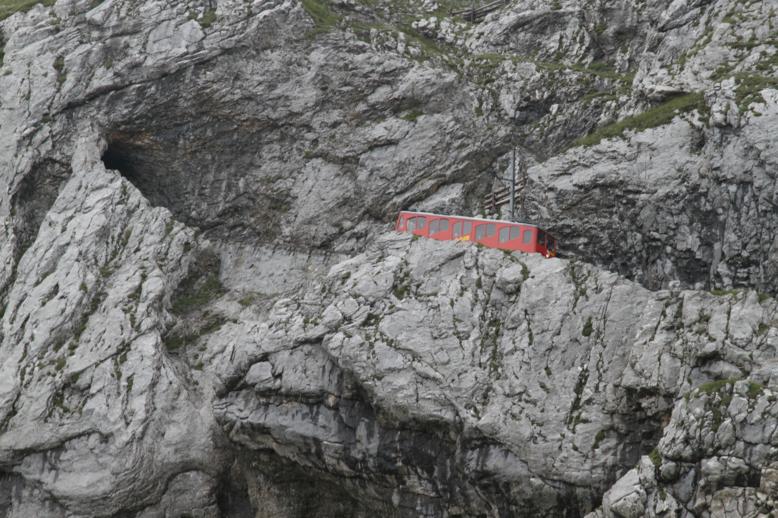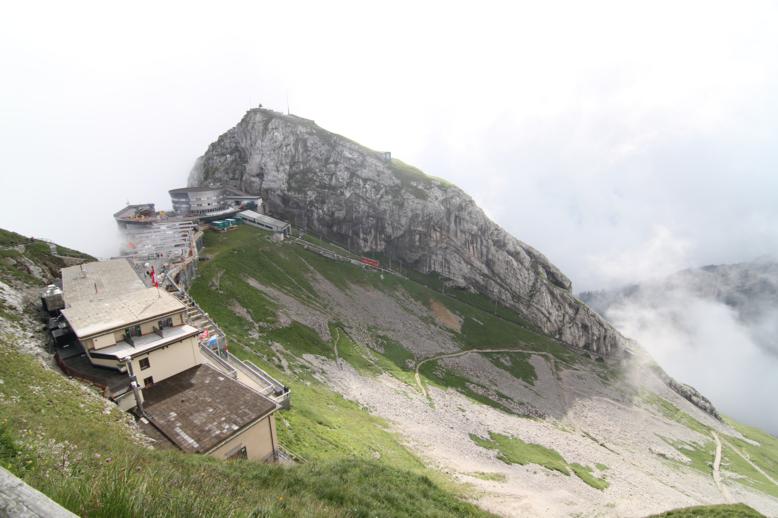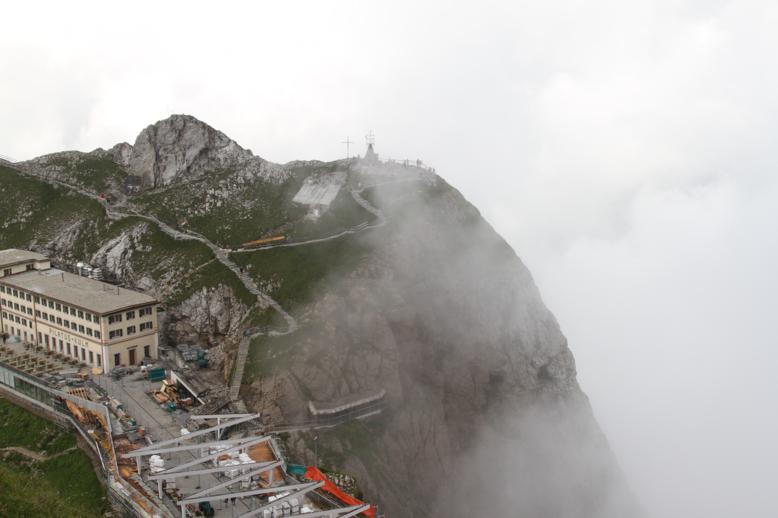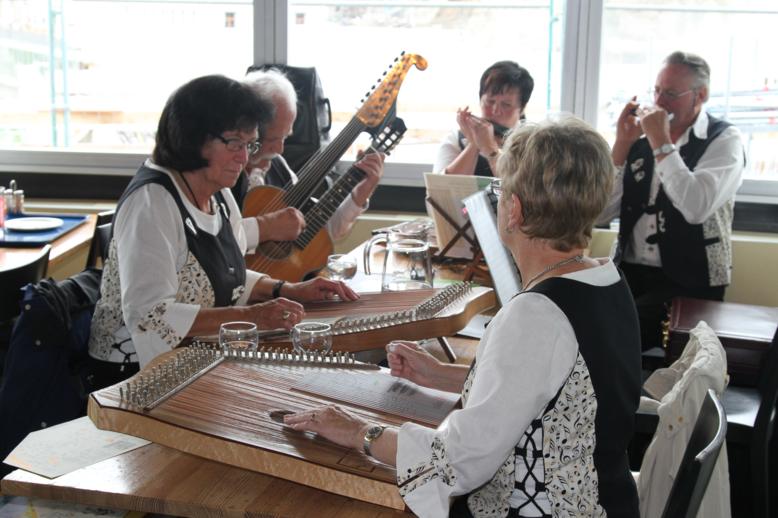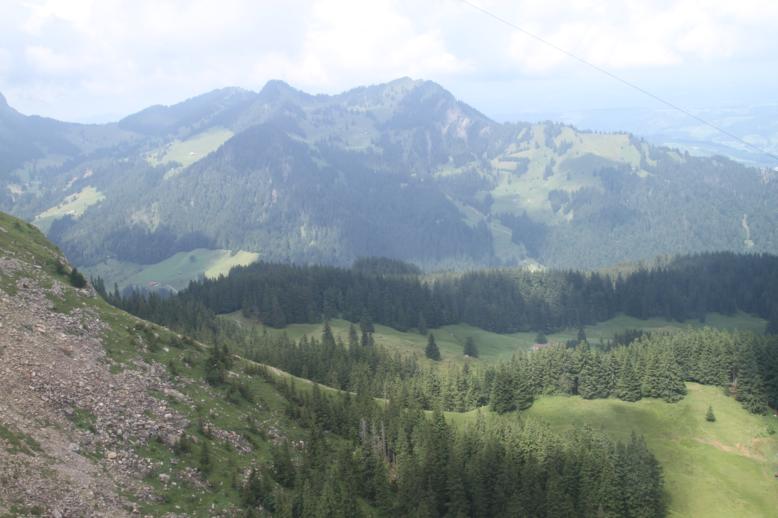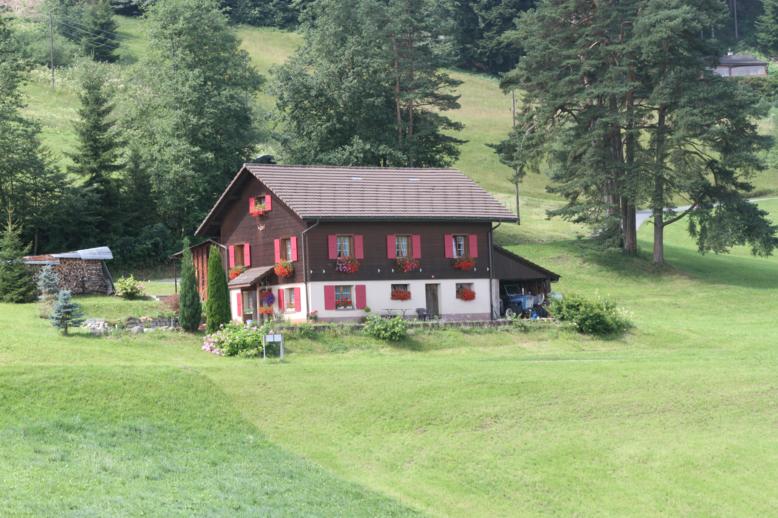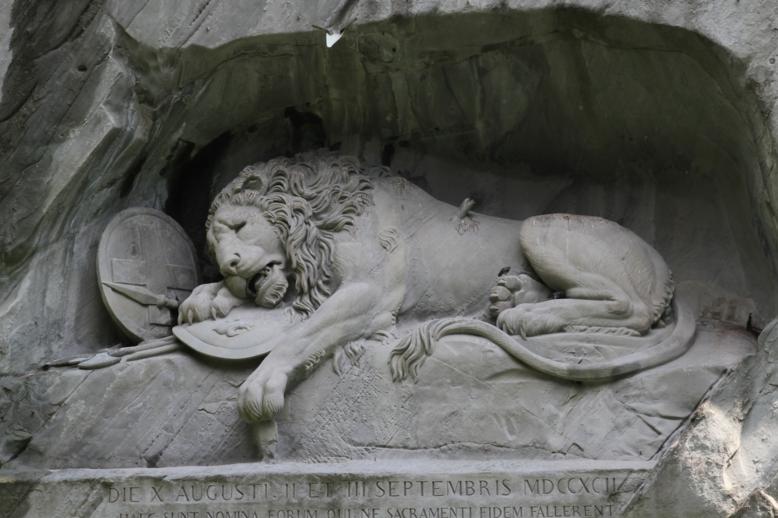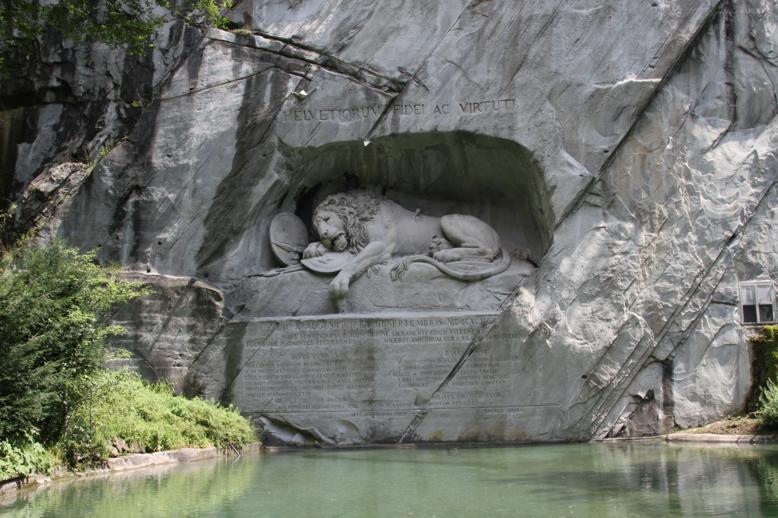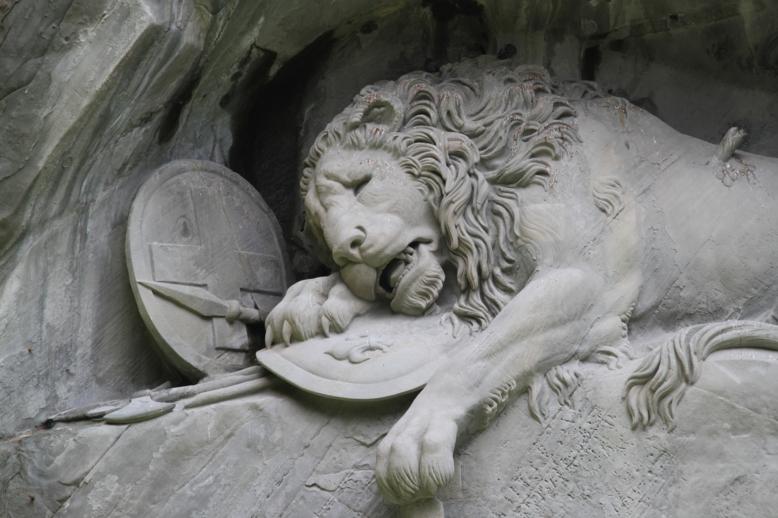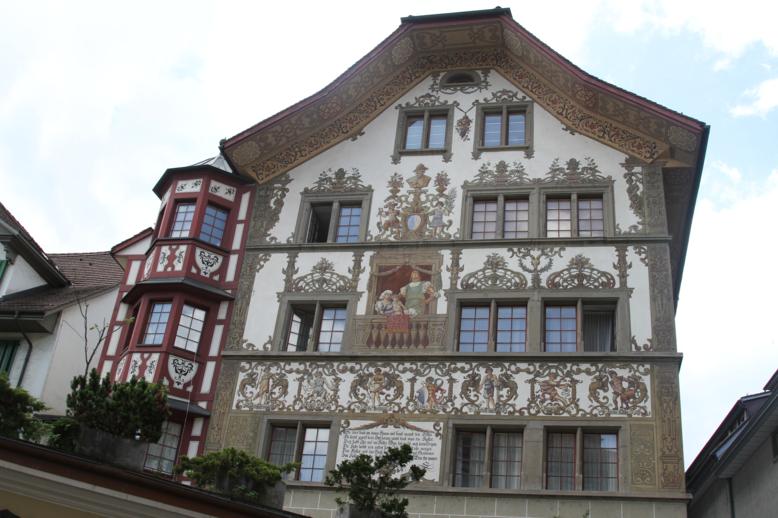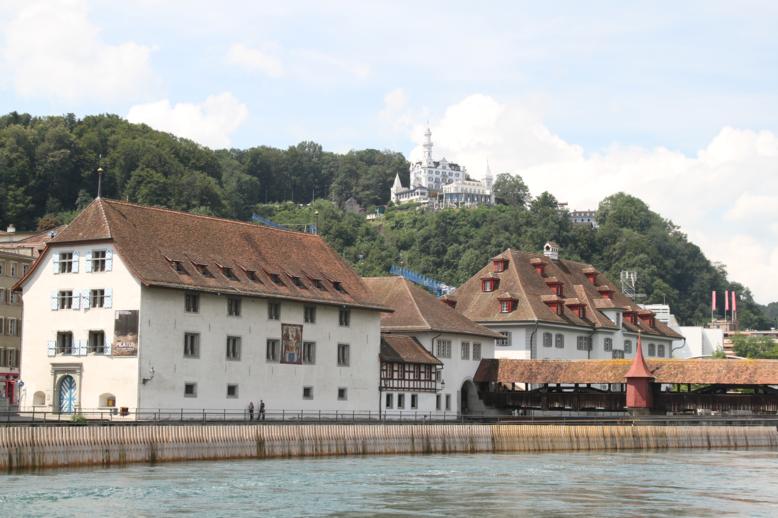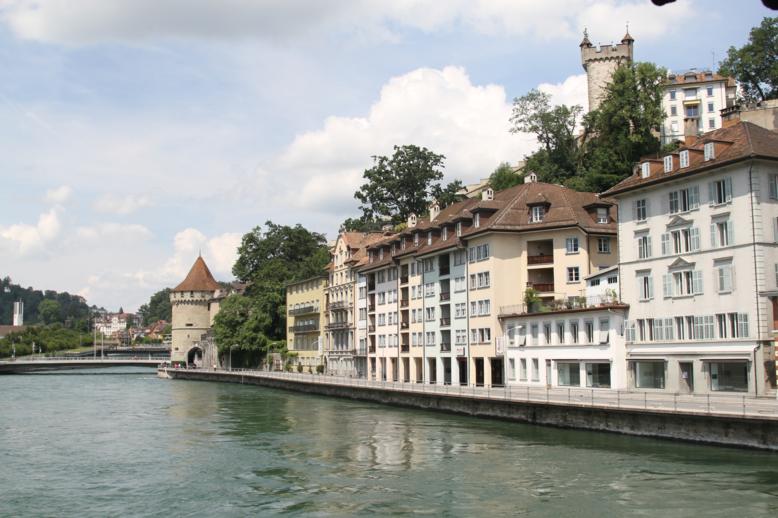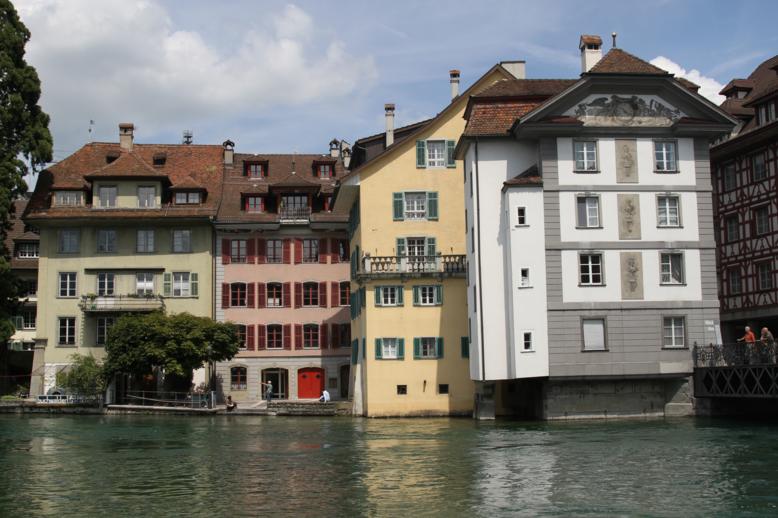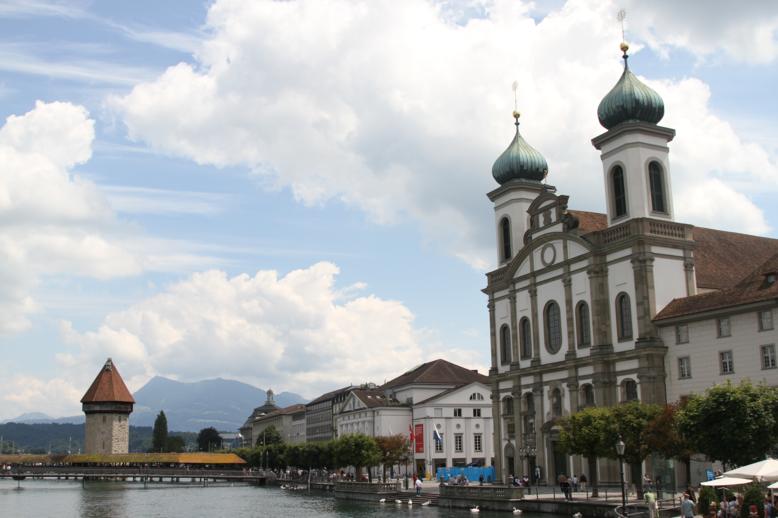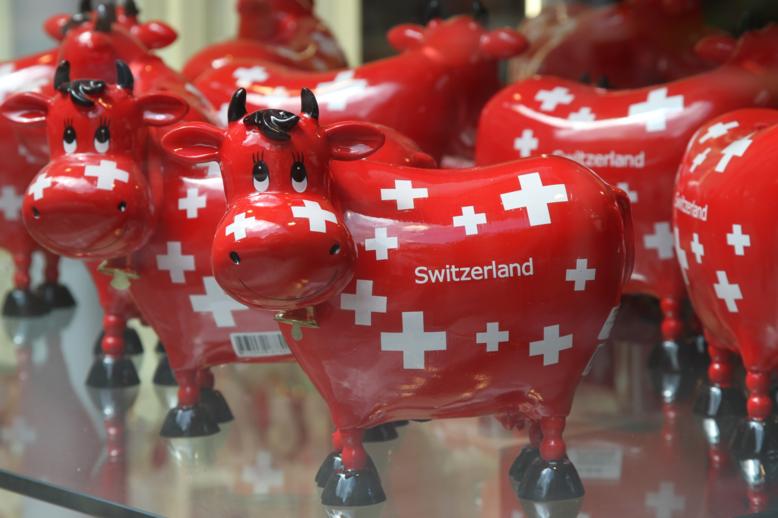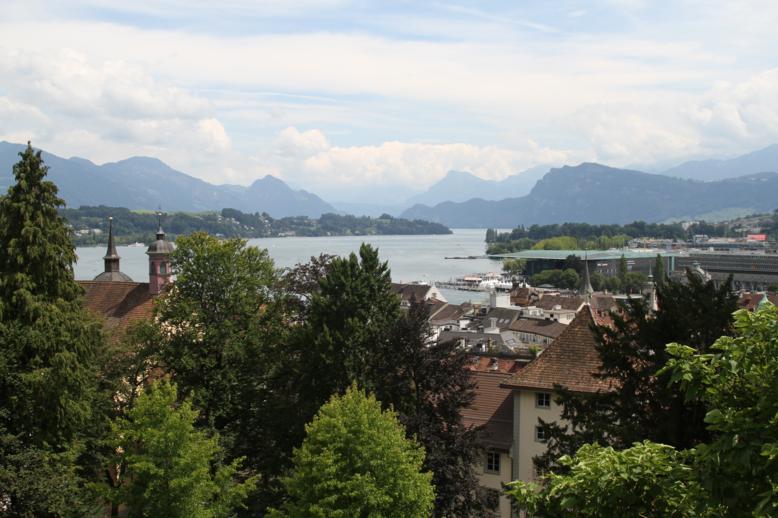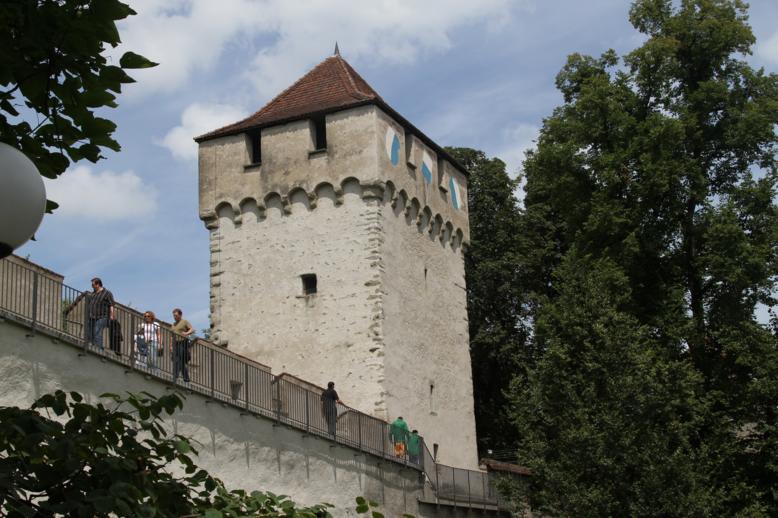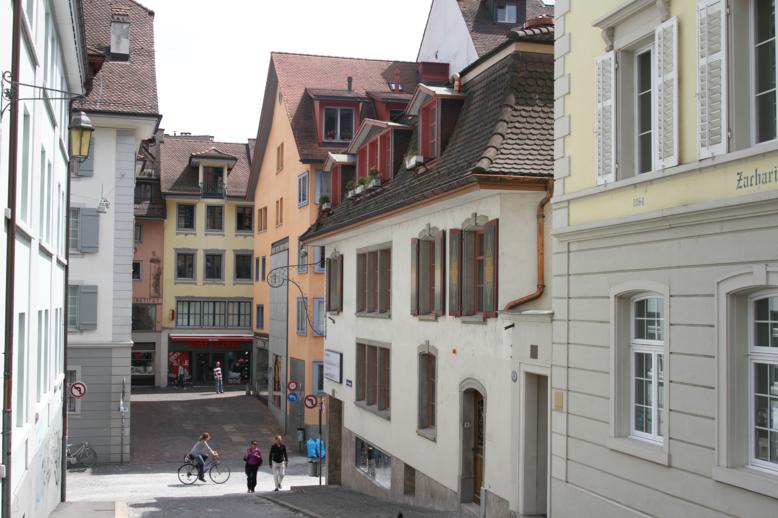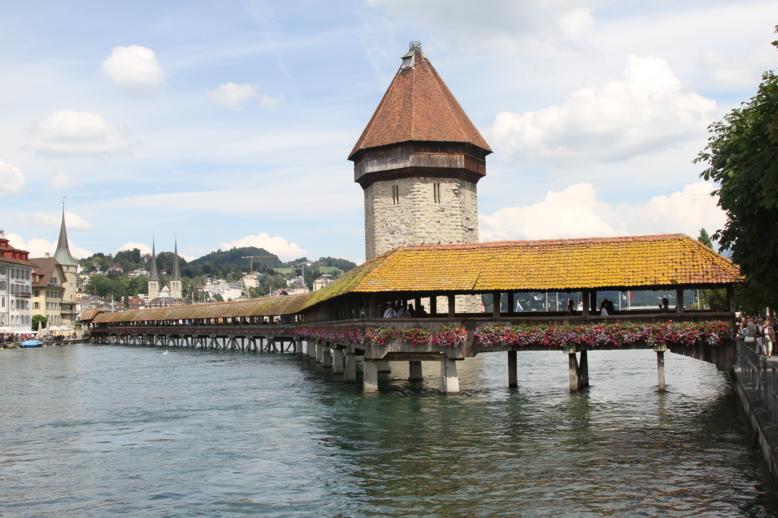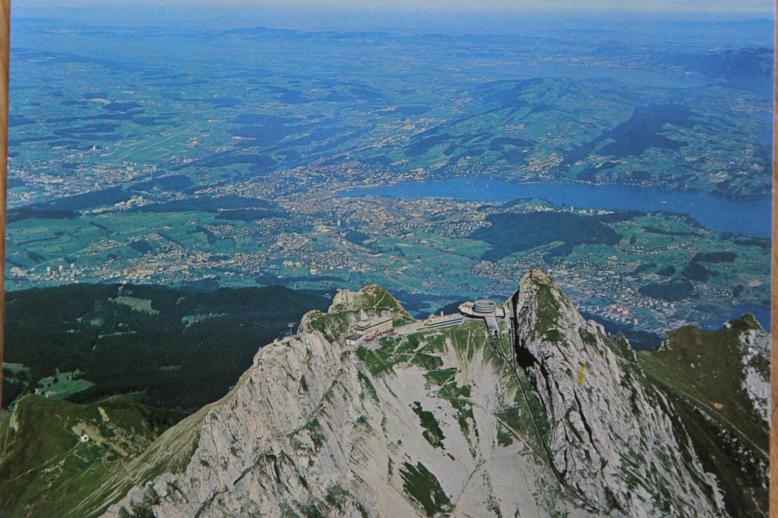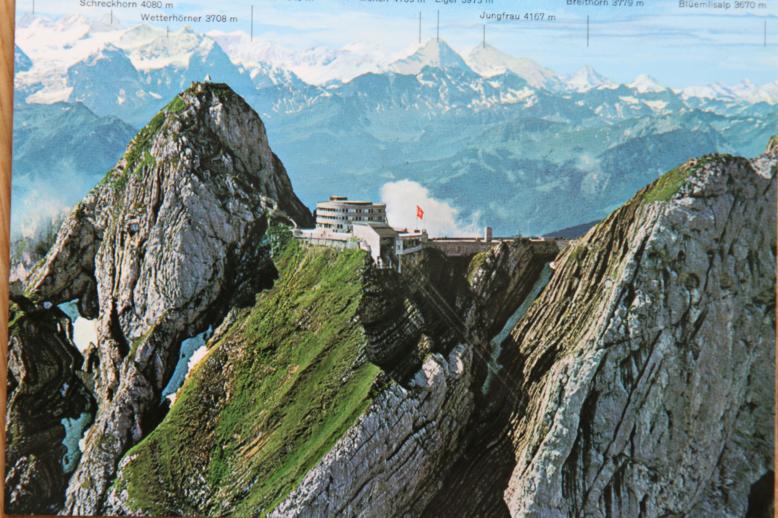|
Friday
23rd.July 2010 (Temperature 22˚C)
The boat moored back in Passau, Germany, at about breakfast time. Our
sleep had been interrupted by a severe thunder storm at about 1:00am. We
must have spent some time in the epicentre as the lightning and thunder
claps were simultaneous. Our luggage was put ashore and the bus, with
our local guide, Elisabeth, arrive to pick us up. We traveled back
towards Munich and then headed towards Fussen. Although it wasn't on our
itinerary, Elizabeth asked the driver to take "the saddle of Ettal"
which took us through Oberammegau. The Passion Plays are on at the
moment and are held ever 10 years. The next season will be in 2020.
The plays date back to the first half of the 17th century. At that time,
in Bavaria, one third of the population had died in the 30 year war and
another third had died of the Black Death, leaving only a third of the
original population. Outbreaks of the Black Death continued. Then the
local priest in Oberammegau declared that if there were no more
outbreaks in the area, the community would write a play about the
Passion of Christ and perform it every 10 years. There were no more
deaths and so the tradition began.
Unfortunately just as we arrived in Oberammegau the heavens opened and
we had to abandon our exploration of the town with its uniquely painted
building facades.
We drove on a little further in the
rain to the Church in the Meadows. in Langau. This was built by Dominicus Zimmermann. The story goes that a
pilgrim passing through area stayed with one of the local farmers. His
stay was extended and so the pilgrim carved a figure of Christ in wood
as a gift to his host. Years later the farmer's wife fell ill. The
farmer went upstairs into the attic and found the statue. He
took it downstairs a laid it beside her. Tears started flowing from the
statue's eyes and his wife was miraculously cured. So it was decided to build a church
in this remote area to house the wooden statue.
We arrived in Füssen at about 3:00pm
and although the Luitpoldpark Hotel doesn't have air conditioning nor an
internet connection in the rooms it is a very comfortable hotel and I
can pick up a very weak, but free WiFi connection from the internet cafe
around the corner.
Saturday
24rd.July 2010 (Temperature low 20s˚C)
The rain fell steadily all night and continued to fall during our 9:00am
visit to another of Ludwig II's extravagant castles, Neuschwanstein. To
put the castle into time perspective, it was built about the same time as
Carl Benz
invented the first motor car, with construction starting in 1867.
So it is relatively modern. Ludwig only lived here for 120 days. He was declared insane and forced
from the throne by the Bavarian Government. Two days later he
mysteriously drowned in a lake along with his doctor.
Although conditions were less than ideal for photos at least the fog
didn't close in on us. This was another location where photos were not
allowed, but the Japanese tour group ahead of us "blazed" away despite
the protests of those trying to enforce the rule. We were a little more
discrete about taking our photos inside.
This is how it looks on the post
cards:-
We stayed at the castle for about 2
hours and then drove through the rain to Lindau on the south eastern
coast of Lake Constance. The rain let up a little but the light was
quite dull.
At about 3:00pm we climbed onto the
bus again in the rain, crossed the border into Austria and then crossed
another border into Switzerland.
The rain stopped within minutes of
crossing into Switzerland and we drove to our hotel in Lucerne, arriving
at about 6:00pm.
Sunday
25th.July 2010 (Temperature mid 20s˚C)
The rain stayed away and there was broken cloud, but from Lucerne we
could see the top of Pilatus Kulm was in cloud. We took the 9:25am cog
railway to the top. The railway was opened in 1889 and the particular
train that took us to the summit was built in 1932. The journey from
Alpnachstad to the peak took about 30 minutes. The railway has a
gradient of between 41% - 48% and goes through 5 short tunnels on the
way up. We spent about an hour on top of Pilatus but the fog thickened.
In the restaurant area there was a small folk band playing traditional
music. Our descent was by the cable car and took us down to Kriens. The copies
of the postcards show how it looks on a fine, clear day.
We returned a little after noon and
went on a short walking tour of Lucerne. We began at the statue of the
Dying Lion. This statue, carved into a rock face, represents the loyalty
of the Swiss Guards. The Swiss coat of Arms is intact while the paw of
the lion is on the French Coat of arms.
Our walk continued through the old
part of the city and along The Reuss River and across the Kapell-Brücke
bridge which was build in the 14th. century but rebuilt numerous times
since.
The last two photos above show how
the post cards depict the view of Pilatus Kulm on a clear day!
We returned to the Hotel Astoria in
Pilatusstrasse, Lucerne at about 3:15pm.
|




